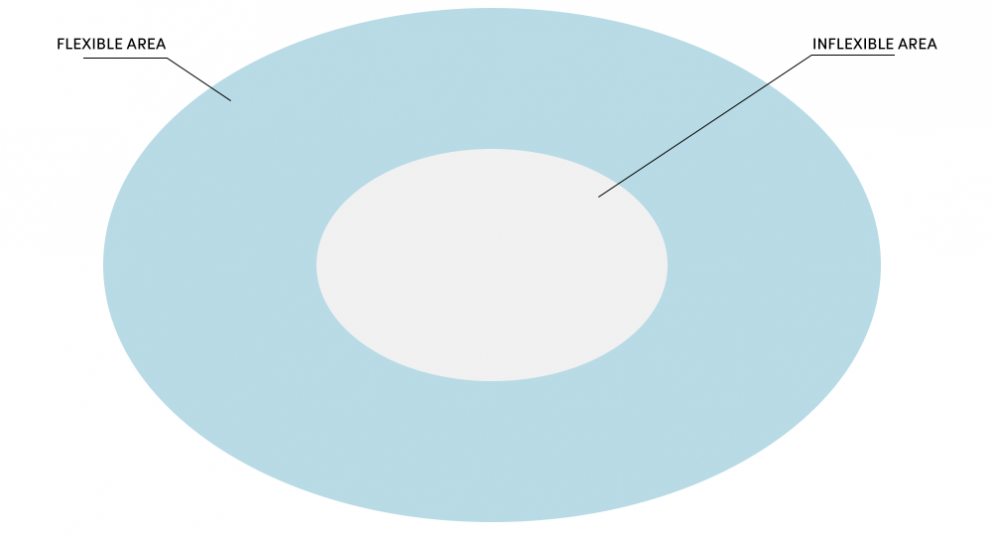Savannah and Sam are arguing again. It’s all too familiar. Sam’s an extrovert. Newly vaccinated, he wants Savannah to go with him to an outdoor gathering this weekend. People energize him. Savannah’s the introvert. She wants to curl up at home with a good book and be cozy, just the two of them. They visited this conflict before the pandemic, and now they’re at it again. They know that as mature adults, they will need to compromise—just as they know they’re going to fail at it one more time.
Did they compromise?
Sam: “Come on, I’ve been so good staying at home with you. I haven’t been out in forever!”
Savannah: “You’re perfectly welcome to go out on your own. I certainly don’t want you to stay at home because you think I’m making you.”
Sam: “Yeah, no pressure from you, I’m sure… Look, you’ll know people there. I really think you’ll have fun!”
Savannah: (rolling her eyes, sighing) “Jeez…okay already! If that’s how you’re going to be, I’ll go!”
Sam: “Is that how you’re going to be? Look, I want you to go, but only if you want to go.”
Savannah: “But I don’t want to go! You know parties stress me out.”
Sam: “Ug! Fine! We’ll do it your way… again.”
Savannah: “No, no, I said I’ll go, and I will. But we are so out of there after one hour!”
It doesn’t matter now if Sam and Savannah go out or stay home. Despite their real desire to connect, they’re now locked into a lose-lose situation. If they go, Savannah will sulk and make sure Sam sees every moment of her misery. Angry and guilty, Sam will do his best to ignore her.
If they stay home, each will do their own thing in an atmosphere of iciness. Now it’s Savannah who will feel guilty and resentful and Sam who’s the martyr.
What happened?
Why didn’t their attempts at compromise work? Both tried to persuade the other of the benefits in their own position. Both did not want the other to be unhappy.
From a purely logical viewpoint, their compromise solution should be pretty straightforward. This couple should sometimes go out together and sometimes stay home. They only have to figure out whose turn it is this time.
But it didn’t work. Nor is this breakdown uncommon. Why does compromise fail for so many couples?
The problem with Sam and Savannah’s approach to compromise is that it actually encourages a form of antagonism. If I give in to your needs, I’m losing out while resenting your selfishness. If I stand firm to get my way, I’m selfish and nervous that you might build up resentment against me.
Plus, attempts at compromise easily bring up charges of unfairness. It’s far more taxing for me to go out than it is for you to stay home, Savannah thinks, how is that fair? But Sam has his own set of standards to show that he is the one paying the higher cost. I ask for so little from you, and you won’t even relax enough to have a little fun with me.
Shifting from lose-lose to win-win
But there is an approach that bypasses this Catch-22 that has a surprisingly simple focus. This is to realize that you are not in a struggle with your partner. You are struggling with how to honor two different needs in yourself.
This change in perspective makes all the difference in the world. If I am “against” you, my focus is on protecting myself. I want what I want. But when I notice that one of the things I want is to make my sweetheart happy, then it’s no longer me against you. It’s me having two “competing” but equally important desires.
Think of what’s happening for Savannah. She wants that lovely evening at home simply because she wants it. If she weren’t in a relationship, she’d happily turn down the party invitation. There’d be no conflict for her. This goes for Sam as well.
But Savannah is in a relationship. She loves Sam, so she also wants to see him happy. If she’s irritated with him, she may not be as aware of it, but it is as important to her as that evening at home. Seeing Sam happy makes her happy. This part of Savannah, and of everyone, is also what sinks when you see the hurt in your beloved’s eyes. Their happiness deeply matters to you.
Being aware of what’s actually going on helps you to not be resentful and to see that compromising is a necessary struggle between any couple that results in either stalemate or growth. It’s not your partner putting you in a difficult position by wanting something you don’t want (whether it’s about socializing, or how to handle chores, or how to have sex). It’s your love for your partner that’s pushing you to think beyond yourself. A situation where the two of you have to seek compromise then becomes an invitation to grow and an invitation to be non-defensive and to listen and speak well. You are standing up for yourself and your partner.
Two ovals exercise
Consider the Two Ovals exercise, a Gottman approach on how to compromise. Here, you each identify an inner circle (the first oval) of what you must have to be true to yourself. If the issue is about finances, for example, perhaps what you must have is money budgeted for travel and adventure. The outer circle (the second oval) is for what you are flexible about (say, how many vacations a year).

Now imagine that one thing you write down for your central needs is “my honey’s happiness.” How differently would this feel as you talk about that risky issue of finances? Instead of each of you defending your position (against the “enemy”), you are as curious about exploring your own position as you are curious about exploring what’s important to your partner. And that is a way to stay connected within the struggle of having different needs.
A different approach
So how might Savannah and Sam sound different if they take this approach?
Sam: “You help me remember the joys of what it means to just relax with someone I love. Sometimes I feel a little too driven to look for fun everywhere but where I’m at.”
Savannah: “I’ll make a bookworm of you yet! But seriously, I’ve always been attracted to your ‘get out and have fun’ energy. Sometimes I’m a little jealous about how easy you make it look. I love being home, you’re right, but I can get down on myself for not immediately feeling sociable. I think I wrongly blame you for having those feelings.”
Sam: “Aren’t we a pair! Well, tonight I do feel excited about Josh’s party. I miss him. There will probably be music. Maybe we can do some dancing? I know you’d like that.”
Savannah: “You know me pretty well. Now that I picture it, it sounds fun. If you’re open to my letting you know when I’m ready to go home, you’ve got yourself a date!”
Sam and Savannah barely noticed they’ve compromised, because nobody feels they’ve lost.
Compromise is just one of the many Gottman exercises that help manage conflict. Learn more with the Relationship Coach.










